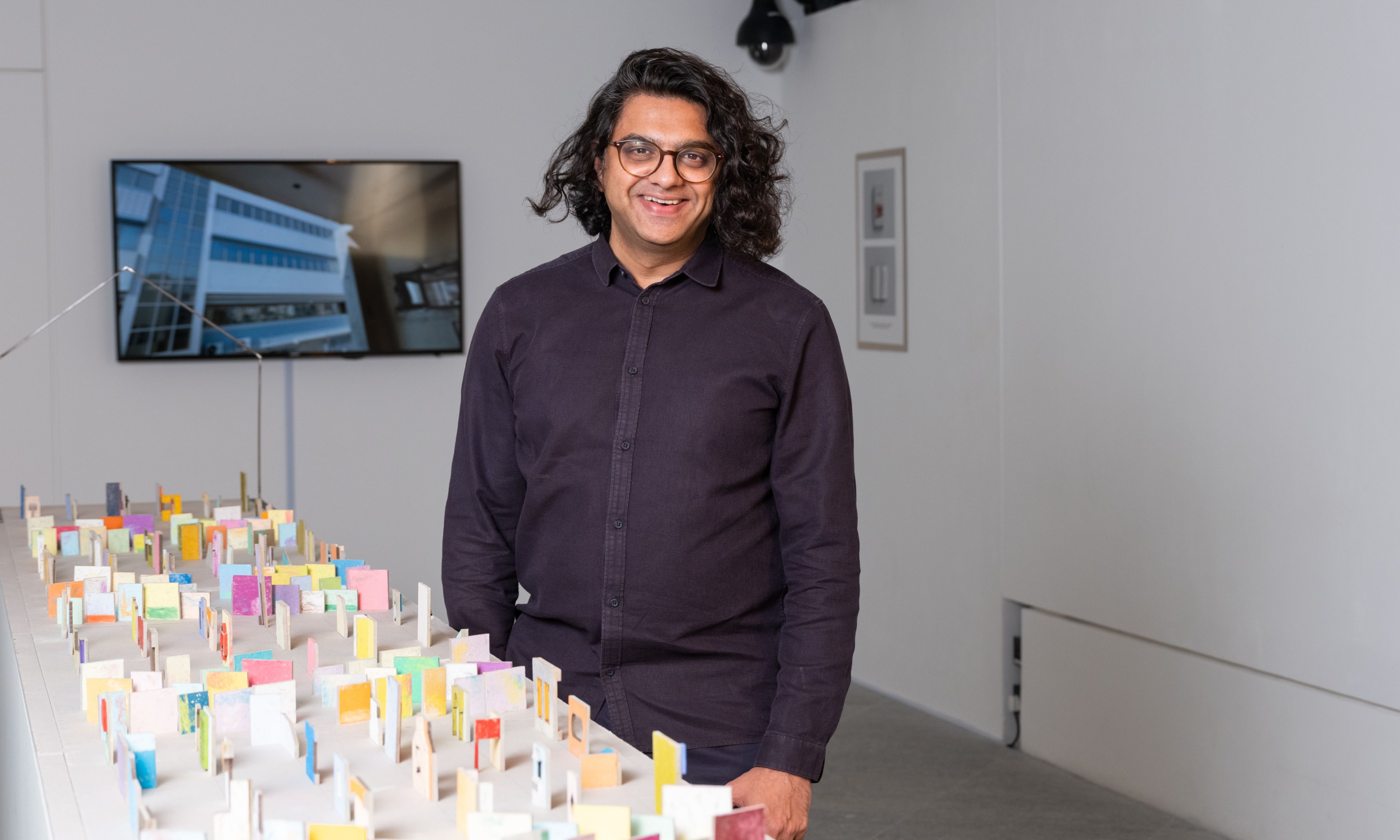Vikram Divecha at the Louvre Abu Dhabi with his work Wall House (2022)
Photo: Augustine Paredes – Seeing Things. Courtesy Department of Culture and Tourism, Abu Dhabi. Artwork © the artist
Ten artists from across the Gulf have been nominated for the second Richard Mille Art Prize. The full list can be found here.
Work by the artists is on show at Louvre Abu Dhabi until 19 March and the winner will be announced 20 March.
“A wall is a witness,” says Vikram Divecha. The Beirut-born, Mumbai-raised artist, who works in both New York and Abu Dhabi, has created an ambitious proposal: a museum of walls. His maquette, Wall House, shows a 500m-long space—perhaps inside a warehouse—with 300 walls saved from demolished buildings around the world. “It’s almost like a walk through a timeline of contemporary civilisation,” he says.
Only one wall has been saved so far, which required the complex co-ordination of metal fabricators, safety engineers, concrete cutters and forklift operators to extract it and prepare it for display (it was too big to fit in the Louvre, unfortunately). Divecha’s request to delay the demolition of an ordinary two-storey residential building in Abu Dhabi confused the municipality, who offered to show him how to create a new wall to exhibit.
Most likely built in the 1980s, the building was not old or unique enough to be considered of architectural importance, but that is exactly why it was worth saving. “For me this is a living fragment of the UAE. I’m trying to make a cultural object from material we are going to [throw away and] forget.” The interior side of the wall is “insanely beautiful, almost like a colour field painting.” Posters of valleys and mountains in Pakistan stuck to the wall give hints to the former residents’ lives.
A close-up of Vikram Divecha's Wall House (2022)
Photo: Augustine Paredes – Seeing Things. Courtesy Department of Culture and Tourism, Abu Dhabi. Artwork © the artist
Divecha works with what he calls “found processes”, where he introduces a glitch into the daily operations of a city or organisation. In 2016, he remapped the routes of Sharjah’s street cleaners so they deposited their rubbish in front of the Art Museum, examining the relationship between art and waste. A year later, he delayed a Paris to Rouen train for five minutes to create a pause in how we relate to time. In 2018, he took a panel from Frieze New York’s tent and displayed it as a minimalist art object in a nearby gallery before returning it.
With one wall collected and hundreds more to go, Divecha’s project is ambitious but he hopes it will draw attention to what is being erased to make way for UAE’s rapid growth.

